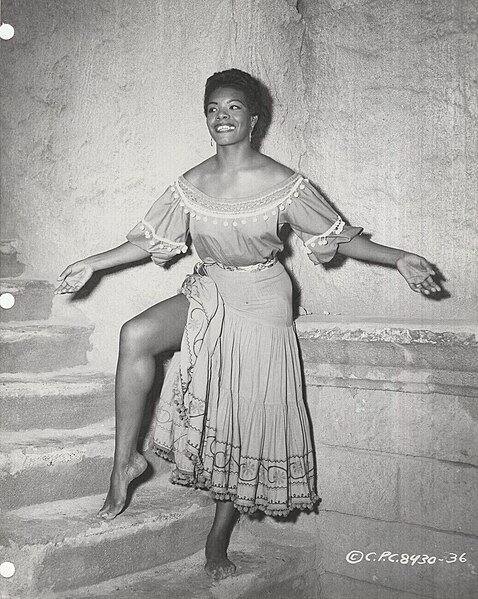A Song Flung Up to Heaven
A Song Flung Up to Heaven is the sixth book in author Maya Angelou's series of autobiographies. Set between 1965 and 1968, it begins where Angelou's previous book All God's Children Need Traveling Shoes ends, with Angelou's trip from Accra, Ghana, where she had lived for the past four years, back to the United States. Two "calamitous events" frame the beginning and end of the book—the assassinations of Malcolm X and Martin Luther King Jr. Angelou describes how she dealt with these events and the sweeping changes in both the country and in her personal life, and how she coped with her return home to the U.S. The book ends with Angelou at "the threshold of her literary career", writing the opening lines to her first autobiography, I Know Why the Caged Bird Sings.
The paperback version
Paul Laurence Dunbar, whose poetry inspired both the titles of Angelou's first and sixth autobiographies in her series
The assassinations of Martin Luther King Jr. and Malcolm X frame the events in A Song Flung Up to Heaven.
Maya Angelou was an American memoirist, poet, and civil rights activist. She published seven autobiographies, three books of essays, several books of poetry, and is credited with a list of plays, movies, and television shows spanning over 50 years. She received dozens of awards and more than 50 honorary degrees. Angelou's series of seven autobiographies focus on her childhood and early adult experiences. The first, I Know Why the Caged Bird Sings (1969), tells of her life up to the age of 17 and brought her international recognition and acclaim.
Angelou in 1993
Image: Signature of Maya Angelou on a typewritten copy of her poem "Caged Bird" (1983) auctioned at the 2013 edition of Doodle for Hunger
Publicity photo for Calypso Heat Wave, 1957
Portrait from the first edition of And Still I Rise (1978)







